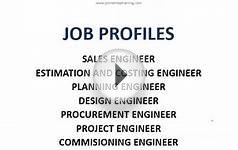HVAC mechanical engineers are involved in almost every phase of a project. They begin with customer consultations and preexisting condition assessments, then assisting with sales departments in choosing appropriate customer solutions. After that, they work with the design teams to create the custom concept and maintain contact with the installation teams for troubleshooting and system upkeep throughout the lifetime of the system. An HVAC mechanical engineer typically works during regular business hours, although they often need emergency on-call availability. Occasional travel is necessary. While much of their work is done in an office, HVAC mechanical engineering often requires field work and being on-site for inspections.
A bachelor's of science degree in mechanical engineering or a related field, is the minimum educational requirement for this position. Experience with commercial-grade heating and cooling systems, plumbing, and fire protection is often required or preferred, as is proficiency in computer-aided design (CAD) programs. Relevant certifications and experience with building codes and standards are often preferred as well. Excellent communication skills are essential, as they commonly collaborate with other engineers and colleagues in the design and implementation of systems. Delegation skills are needed to ensure productivity within the team setting.
HVAC Mechanical Engineer Tasks
- Develop proposals, estimates, and schedules for HVAC systems and bids.
- Perform reviews to establish feasibility and quality of installation, space and maintenance needs.
- Calculate heating and cooling needs and tolerances, designing controls, and maintenance protocols.
- Design HVAC systems, including writing specifications.









